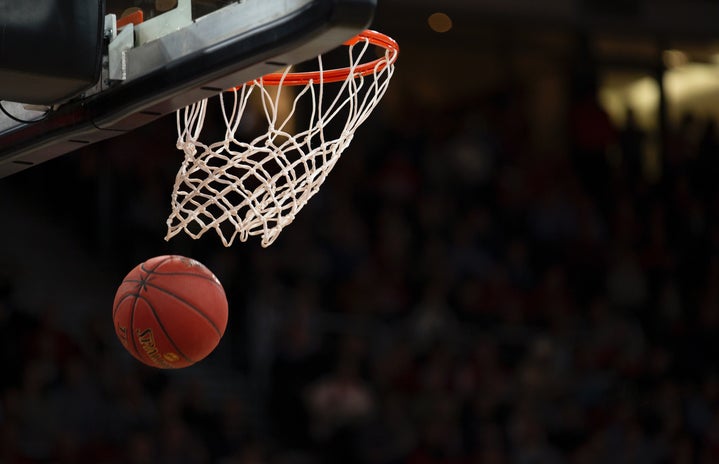Women’s World Cup Champion, Megan Rapinoe, is an international symbol for equality; she is outspoken about women’s and LGBTQ rights and filed a lawsuit with her teammates against the U.S Soccer Federation for equal pay. Her stance on activism is evident in the documentary LFG where she claims: “I feel like I’m just like a super engaged citizen. Everybody should be this engaged. Everybody should care this much.” Athletes, like Rapinoe, are obligated to use their platforms to speak out, fight for their rights, and represent those who don’t have the same voice. Especially in today’s political climate, with racial tensions at a concerning high, gun violence controlling the sanctity of education, and lawmakers reverting back to 1950s America, anyone in the public light has endless opportunities to become allies; there is no excuse for not being an athlete activist in 2023.
Historical Athlete-Activists
Rapinoe and her US Women’s Soccer teammates are not the only athletes who use their platforms to fulfill their duties as political activists. In 1973, Billie Jean King fought for equal prize money in tennis and thus influenced the creation of Title IX, which was established the same year King beat Riggs in the infamous “Battle of the Sexes.” Likewise, Jesse Owens, after crushing his competitors in the 1936 Olympics, raised his fist in the air at the podium as a protest against Hitler and his twisted view of minorities. Recently, quarterback and civil rights activist Colin Kaepernick created an uproar after kneeling during the national anthem in protest against police brutality and racial inequality. Although Kaepernick was dismissed from the NFL, surveys state he influenced some Americans to vote. Although throughout history some athletes have fulfilled their duties as activists, others are afraid to speak out in fear of censorship.
Criticism and Censorship
A well-known case of an athlete being criticized for voicing their political and social justice viewpoints was when Fox News reporter Laura Ingraham told Lebron James to “shut up and dribble” after he brought up BLM and police brutality in an interview. James did not allow Ingraham’s comments to silence him and claims, “the best thing she did was help me create more awareness.” Thus, James takes his job as an athlete-activist seriously and acknowledges: “I get to sit up here and talk about social injustice. (….) We will definitely not shut up and dribble. I mean too much to society, too much to the youth, too much to so many kids who feel like they don’t have a way out.” Other NBA players like Stephen Curry and Michael Jordan use their platforms as well-known and idolized players to speak out on injustice. Not allowing the disapproval of others to silence you is part of the requirement for being not only a model for younger generations but also key to representing underprivileged individuals through activism.
WNBA and the 2020 Election
Laura Ingraham and those with similar takes on freedom of speech for athletes might be unsure how sharing your political views can make an impact and might ask: does using your platform as an athlete for political reasons actually do anything? In the case of the 2020 presidential election, WNBA players who advocated for the Georgia democratic party did impact politics in the United States. In an NPR Politics Podcast with Nneka Ogwumike, forward for the Los Angeles Sparks and president of the WNBA Players Association, she explains how the outspokenness of players like herself, Sue Bird, and Elizabeth Williams from the Atlanta Dream helped make Georgia a blue state for the first time in years. While Ogwumike and Bird promoted democracy from the west coast, players from the Atlanta Dream, led by Williams, showed their support for candidate, Raphael Warnock, by releasing a political statement against the former-team owner and Republican senator Kelly Loeffler. While this caused controversy, Ogwumike supports the team statement and says, “the fear of standing up is not as big of fear of the world we’re currently living in.”
During the 2020 election, the United States was in a state of utter political unrest. At this time, members of the WNBA took the opportunity to protest by boycotting games, locking arms and raising their fists during the National Anthem, and for some teams, dedicating their entire season to Breonna Taylor and other human rights causes. Nneka Ogwumike explains how WNBA activists aim to represent their demographic of mostly black women and asks, “if we don’t do it for ourselves, who else is gonna do it?”. She goes on to say athletes “mobilize in the best way we [know] how, because we have a platform” and being politically candid in 2020, even if it angered some fans, was “something we hoped would ignite.” Nneka Ogwumike, Sue Bird, and Elizabeth Williams are just a few WNBA players who model the proper balance between athlete and advocate, particularly because they represent POC, female, and LGBTQ minority groups.
Moving Forward
Current day North America is a safe place for white, Christian, upper-middle class, Republican men. Unfortunately, many Americans do not fall under this very specific list, and thus cannot be guaranteed protection or equal treatment in “the land of the free.” Fortunately, our society idolizes many athletes despite their skin color, sexuality, and religion. Thus, athletes with positions of social power, especially those who represent repressed groups themselves, have a patriotic obligation to be activists. Nneka Ogwumike describes her position as an athlete-activist when she says, “what we fight for for ourselves is what we need to fight for for women everywhere.” There is no excuse for staying politically neutral in a country where so many people are so aggressively oppressed. In the words of Megan Rapinoe: “discriminated peoples do not have the luxury of fucking around.” Wake up, America: it’s time to be political.


